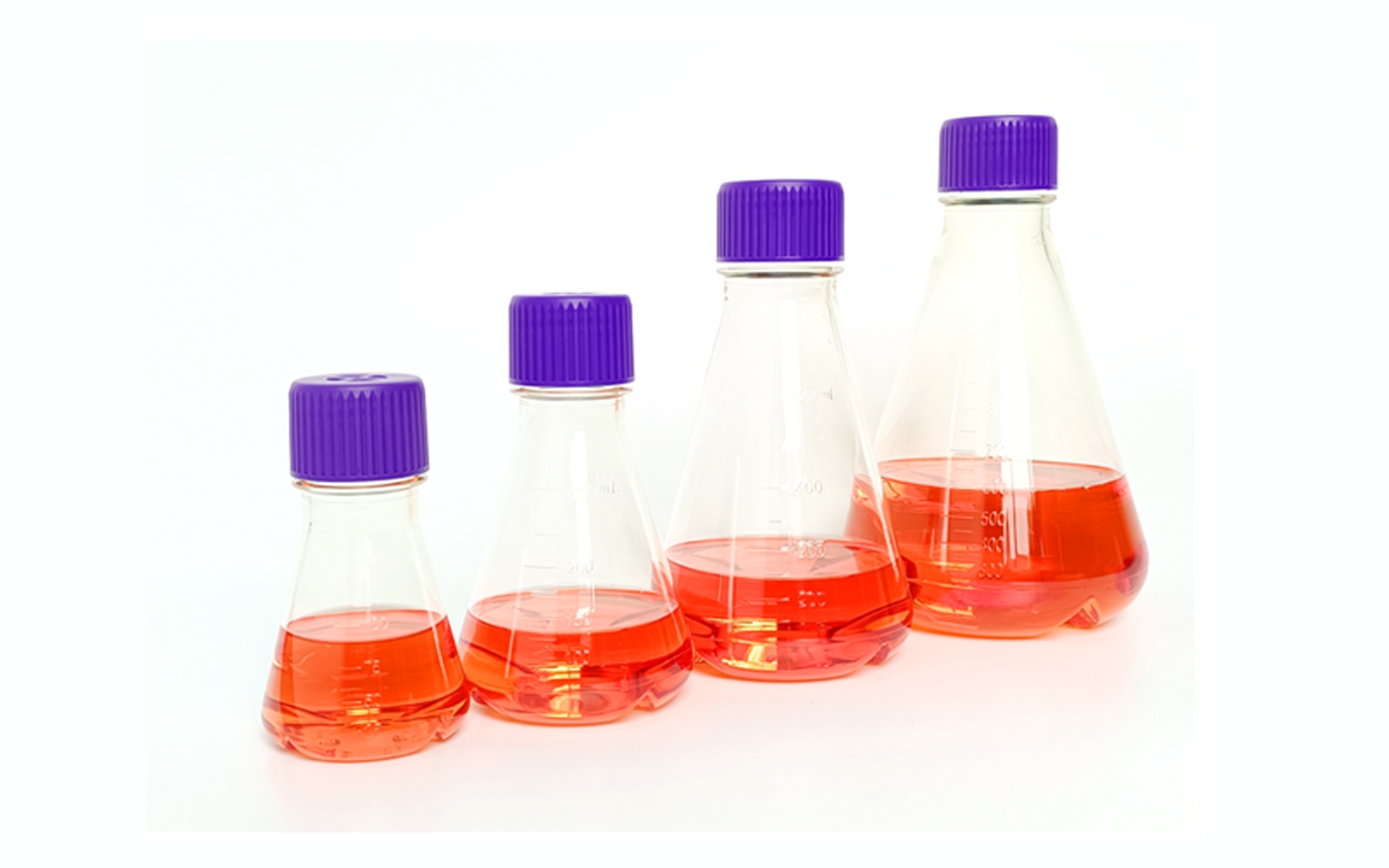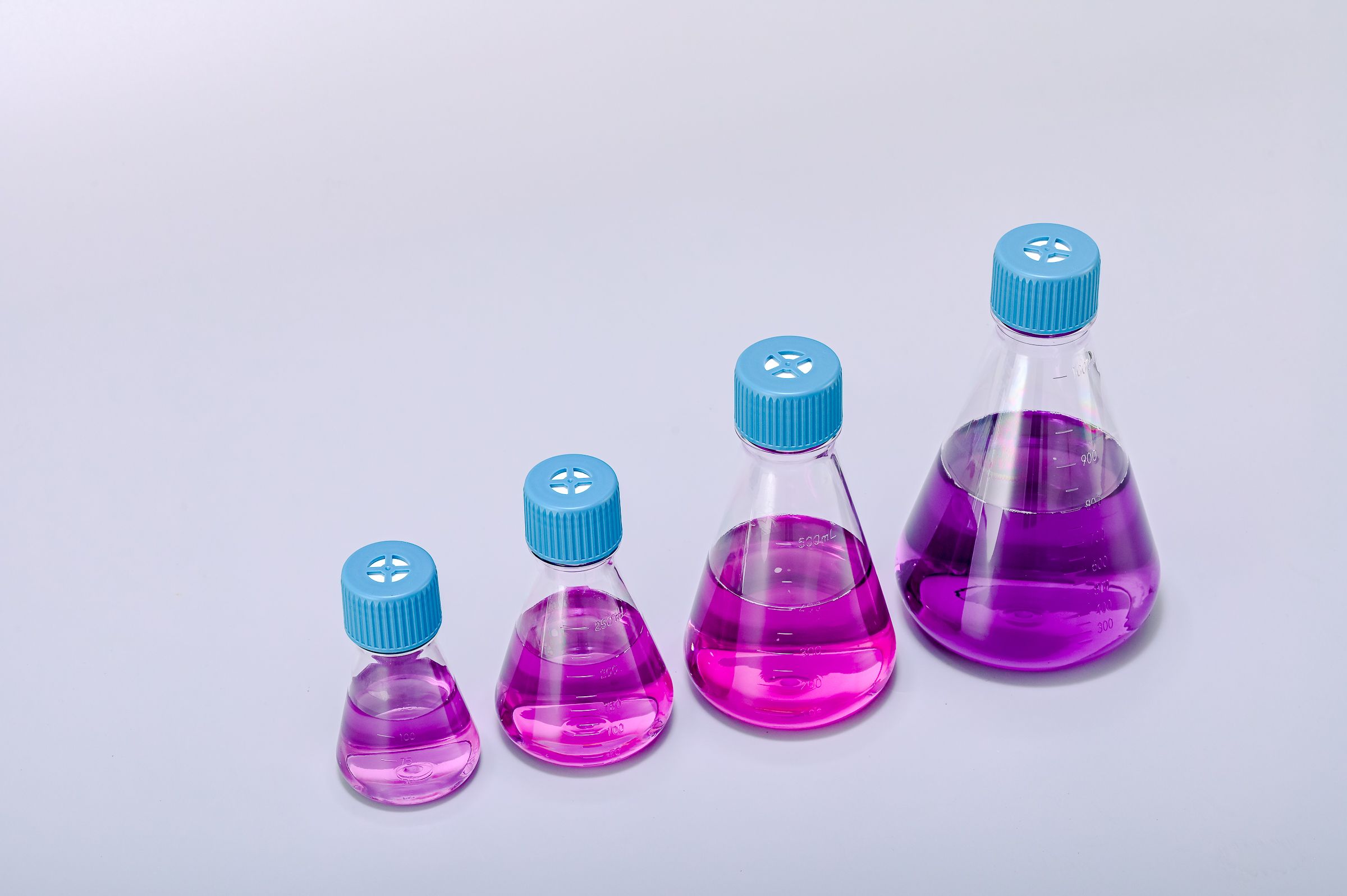Introduction
Conical Erlenmeyer flasks are fundamental tools in scientific laboratories, facilitating a range of tasks from mixing solutions to culturing microorganisms. However, the quality of these flasks significantly influences their performance in laboratory applications. This article delves into the defining features that set high-quality conical Erlenmeyer flasks apart from standard ones and the substantial impact these features wield on experimental precision and reliability.

Characteristics of High-Quality Conical Erlenmeyer Flasks
- Material Composition
Borosilicate Glass: High-quality conical Erlenmeyer flasks predominantly utilize borosilicate glass due to its superior thermal shock resistance, chemical inertness, and clarity. This composition ensures durability and minimizes the risk of chemical interaction with the contents.
Plastics: Some high-quality flasks use specialized plastics, offering advantages such as lightweight construction and resistance to specific chemicals. However, these materials might lack the robustness and versatility of borosilicate glass.
- Design Features
Shape and Conical Design: The conical shape allows efficient mixing and swirling of substances, aiding in uniform heat distribution during heating processes. Additionally, it enables better gas exchange in biological cultures.
Thickness and Uniformity: High-quality conical Erlenmeyer flasks exhibit consistent wall thickness, ensuring even distribution of stress and preventing breakage or distortion during temperature fluctuations or vigorous mixing.
Precision Calibration and Volume Markings: Accurate graduation marks and clear volume indicators contribute to precise measurements, crucial for reliable experimental outcomes.
- Manufacturing Standards and Quality Control
Compliance with Industry Standards: High-quality flasks adhere to stringent manufacturing standards, such as ISO or ASTM, ensuring uniformity and reliability.
Quality Assurance: Rigorous quality control measures in production guarantee consistency in material composition, design accuracy, and calibration precision.
Comparison with Standard Erlenmeyer Flasks
- Material Quality and Durability
Differences in Material Composition: Standard flasks might use soda-lime glass or lower-grade plastics, compromising durability, chemical resistance, and thermal stability compared to borosilicate glass.
Impact on Longevity and Performance: High-quality conical Erlenmeyer flasks demonstrate superior resistance to chemical corrosion, thermal stress, and mechanical damage, ensuring longer lifespans and more reliable performance.
- Precision and Accuracy:
Calibration Accuracy: Standard flasks often lack precise calibration, resulting in inaccuracies in volume measurements that can impact the reliability of experimental results.
Influence on Experimentation: High-quality flasks with accurate volume markings ensure reproducibility and precision in experiments, critical for consistency and accuracy.
- Design and Construction:
Usability Differences: Standard flasks might lack the optimized conical shape, uniform wall thickness, or clear markings present in high-quality conical Erlenmeyer flasks, affecting their ease of use and functionality.
Impact on Laboratory Tasks: Enhanced design features in high-quality flasks facilitate efficient mixing, pouring, and heating, contributing to smoother laboratory procedures and improved outcomes.
Contribution of Key Features to Better Performance
- Enhanced Durability and Chemical Resistance
Resistance to Corrosive Agents: The chemical inertness of borosilicate glass ensures minimal reactivity with various substances, safeguarding sample integrity and experimental accuracy.
Reduced Risk of Breakage: Uniform wall thickness and superior thermal shock resistance in high-quality conical Erlenmeyer flasks minimize breakage, ensuring longevity and safety in laboratory settings.
- Precision and Accurate Measurements
Importance of Calibration: Precise volume markings enable accurate measurements crucial for dilutions, mixing ratios, and sample preparations, impacting the reliability and reproducibility of experiments.
Reliability in Research: Accurate measurements lead to reliable data collection, essential for robust scientific research and development.
- Improved Functionality and Usability
Enhanced Design for Efficiency: The conical shape and optimized construction in high-quality flasks facilitate efficient swirling, mixing, and pouring, enhancing the execution of laboratory procedures.
Optimal Performance: These design elements ensure better control over reactions, homogeneity in mixtures, and ease of observation, contributing to improved experimental outcomes.
Impact on Laboratory Applications
- Specific Use Cases and Experiments
Biological Cultures: The conical shape aids in cell culture growth by providing increased surface area and better aeration, promoting cell proliferation and viability.
Chemical Reactions: High-quality conical Erlenmeyer flasks withstand various chemical reactions, ensuring accurate measurements and safe containment of reactive substances.
- Advantages Over Standard Flasks:
Efficiency in Experimental Work: High-quality flasks offer superior durability, precision, and functionality, resulting in more efficient and reliable laboratory processes.
Contributing to Scientific Advancements: The consistency and accuracy provided by high-quality flasks play a pivotal role in advancing scientific research and technological development.
Conclusion
In conclusion, the distinction between high-quality conical Erlenmeyer flasks and standard ones lies in material composition, design features, and manufacturing standards. These key differences significantly impact the performance, precision, and reliability of laboratory experiments. High-quality conical Erlenmeyer flasks, characterized by superior durability, precise calibration, and optimized design, contribute to more accurate measurements, enhanced experimental outcomes, and advancements in scientific endeavors. Researchers and laboratory professionals must acknowledge and utilize these distinctions to optimize their experimental processes and achieve more reliable results.
Related Products





